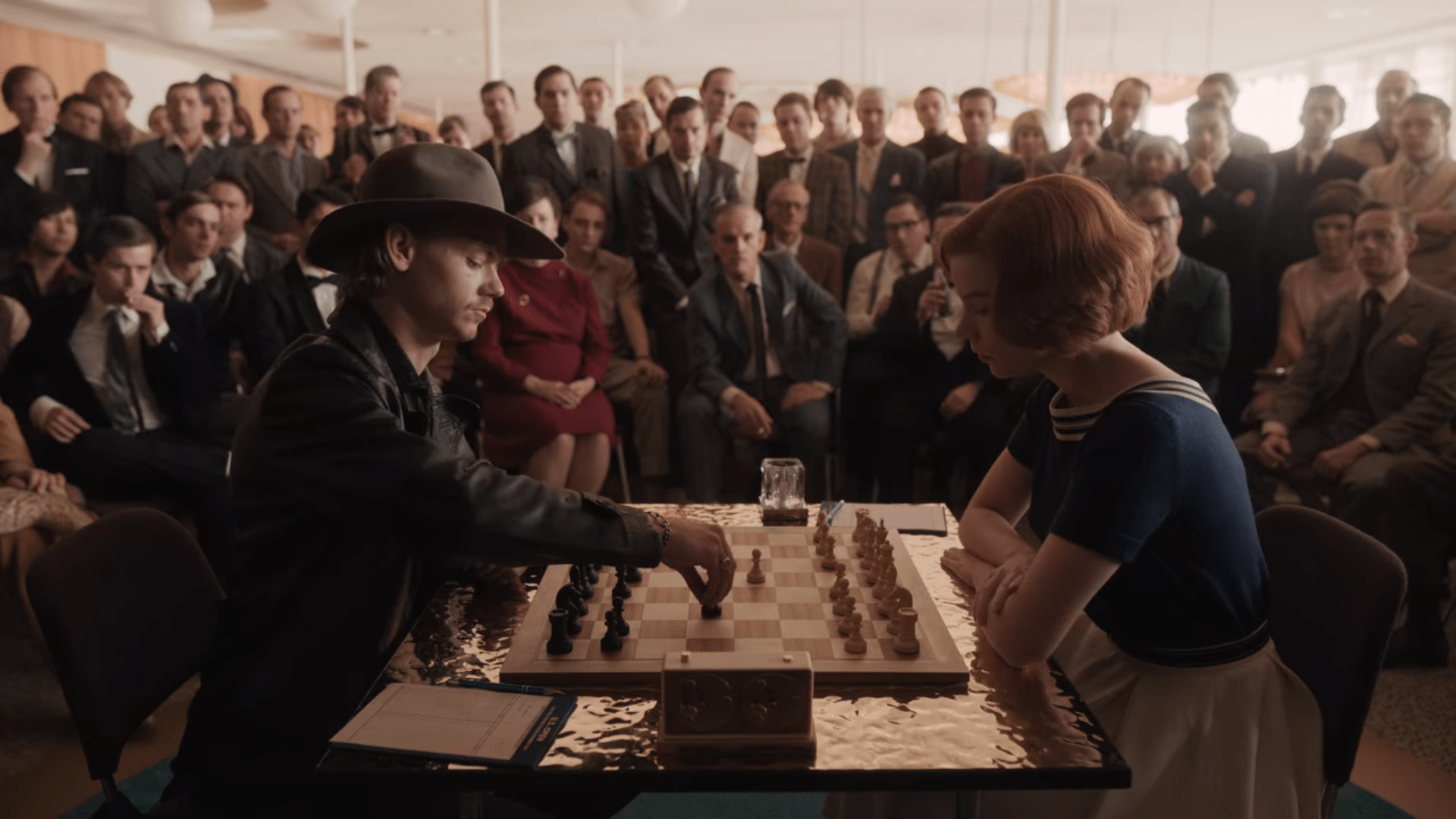‘The Queen’s Gambit’ REVIEW: pleasurable, yet substantially inconsequential binge
‘The Queen’s Gambit’ REVIEW: pleasurable, yet substantially inconsequential binge
Anya-Taylor Joy in The Queen’s Gambit (2020).
Novelty isn't the description one can apply on The Queen's Gambit. To be frank, the said aspect is its weakness. Netflix's most successful limited series follows Beth Harmon (Anya-Taylor Joy), an orphan who takes a liking in games of chess and aspires to be a master of the competitive board game. The miniseries is a sports drama, utilizing a common “rise-to-fall” structure on its young prodigy's personal and professional journey. It results in quite riveting and binge-worthy television but it leaves a lot to be desired in terms of thematic depth.
Throughout the series’ run, Scott Frank has the tendency to fall back on shortcuts and conveniences, especially during chess matches. The cast and crew definitely have extensive knowledge in the popular board game, and the editing commits wonders to make such a low-profile contest so enticing. However, some devoted chess players will find themselves curious and distracted about why it doesn't let them soak into the games themselves. At times, the series cut away from a large section of the matches, sacrificing the exposure to irrelevant reaction shots of onlookers, or skimming through the events by dialogue.
Anya-Taylor Joy and Thomas Brodie-Sangster in The Queen’s Gambit (2020).
The decision to make "less-show, more-tell" seems reasonable for rounds of smaller importance, but for the climactic showdowns, it’s an unwise creative liberty for Frank to burn the forests down instead of navigating them in a much more meticulous yet engrossing experience. There isn’t a clear idea of neither the characters’ understanding about the game at hand nor their learning processes, leaving us in the dark. How can we know if the player is who he said he was when we can't savor and examine every move more elaborately? Yes, this will require extra time and effort. But when the showrunners already hired consultants such as Russian chess grandmaster Garry Kasparov, Frank and his team would have constructed more thorough sequences of gameplays with their help by allowing us to see what piece is being played, what is taken, and where each of them is placed on. Instead, Scott Frank doesn’t implement the visual medium in its fullest, rendering certain sequences scattered around the miniseries with lackluster visual storytelling.
In addition, how The Queen’s Gambit explores addiction and childhood trauma isn’t as provocative and hefty as it wants to be. Sure, we see her succumb to alcoholism as her life takes a turn for the worse but it never remarkably confronts and criticizes Beth’s fatal flaws in a fervent way. The final episode offers a comforting sense of closure about the tragedies and missed opportunities in her past, but it does the bare minimum when the series only hints at the profundity and never provides an opportunity to scrutinize deep into its core.
Nevertheless, the miniseries is still worth the time spent, mainly because of Anya-Taylor Joy, whose show-stealing performance preserves the audiences' investment from start to finish. She makes these postures and gestures that make her a complex personality to follow. She can be seductive with a simple stare. Panicky with a subtly twitchy eye movement, a dominant in the chessboard with a calm but measured lever of a hand and a cold, calculated look. I can't imagine another actress who can play Beth Harmon, as Anya expresses so much and commands the screen with her presence.
The side characters aren’t as captivating as Beth, but it’s a nice relief when her former competitors aren't always apprehensive towards her. Often these stock characters are written as the worst adversaries that will threaten to sabotage the heroine's arc. For The Queen’s Gambit, these figures are supportive in surprising ways.
Above all else, the standout of the supporting cast is Marielle Heller’s Alma, who assumes the role of a motherly figure for the heroine. She’s initially awkward and unsure of how to approach this young lady who recently arrived in her household. Eventually, these two women have developed a clear understanding with each other, and walked hand in hand in Beth’s ambitions. Although she doesn’t stay in the narrative long enough, she is indeed one of the memorable components of the show, bringing a wholesome feeling in a series that feels a bit too workmanlike at times.
Although The Queen’s Gambit tends to be condensed and unchallenging to a fault, and resolutions arrive so quickly it's lacking any real consequences, it remains an entertaining piece of television that's with humor and stylish urgency. While there are elements of cheese and drama that are undeniably contrived here, The Queen's Gambit has always something to pull viewers back with its top-notch production design of period-appropriate buildings and vehicles, extravagant and narratively fitting costumes, alluring cinematography, and an award-worthy lead performance.










